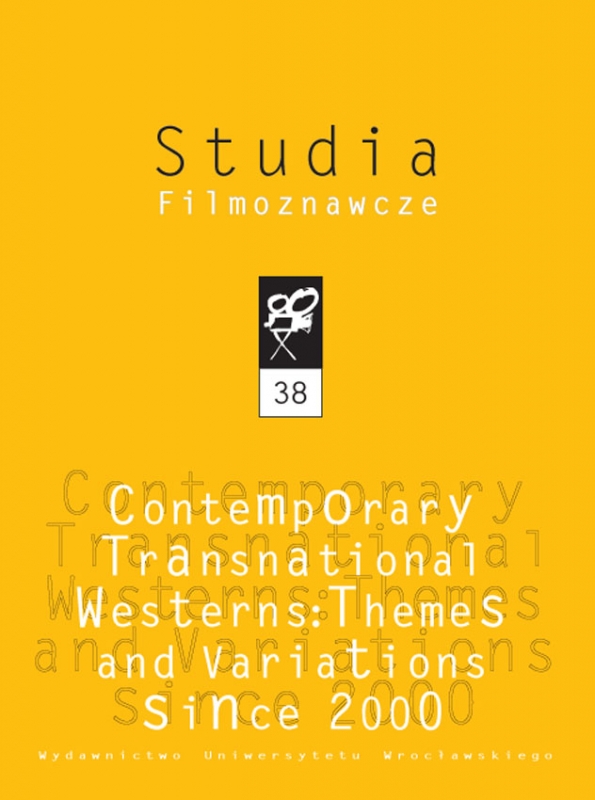

Artykuły

The War on Terror was made global in 2001 through U.N. Resolution 1373. Nassim Amaouche’s 2009 Adieu Gary appears distant from this transformation in international law. Yet its French-Arab protagonists negotiate mass media envisionings of the “terrorist” in ways that highlight the pressures the controversial resolution placed upon Arab and racially mixed populations. Adieu Gary subversively refashions the Western aesthetic and its iconic heroes for this post-9/11 context to signify not strength but weakness. In its appropriation of the ghost town convention, the film thus becomes a unique example of the disrupted, transnational Western which visualizes the disrupted lives of banlieue youth, articulating the psychological disempowerment of an ethnic group framed in legal terms as a potentially violent threat.
My paper unveils the richness of this singular film’s commentary on French public discourse through an interdisciplinary framework that combines analysis of Resolution 1373’s impact in France, an awareness of the film’s intertextual gestures to classic Hollywood Westerns, and a post-colonial theoretical perspective. A vision of the terrorist Other, codified in law and propagated in popular culture, affects the French-Arab’s self-perception in the film. The sheriff of the Western, emblematized by Gary Cooper’s lawman from High Noon who seems to haunt the setting, reinforces the banlieue inhabitant’s powerless state. Conservative Islam then becomes the sole route for an autonomous identity; however, the film’s ambivalence reveals how this embrace of Islam further condemns the French-Arab subject to a life in limbo, trapped in an existential ghost town somewhere between life and death.
ROZBITY GATUNEK, ROZBITE ŻYCIE — ADIEU GARY I „POSTJEDENASTOWRZEŚNIOWE” PRZEDMIEŚCIE JAKO WYMARŁE MIASTO
Wojna z terroryzmem stała się globalna w 2001 roku w wyniku rezolucji ONZ nr 1373. Film Nassima Amaouche’a Adieu Gary z 2009 roku wydaje się daleki od tej transformacji w międzynarodowym prawie. Jednakże jego francusko-arabscy protagoniści negocjują massmedialne wyobrażenia „terrorysty” w sposób, który rzuca światło na presję, jaką ta kontrowersyjna rezolucja wywarła na arabskiej i rasowo mieszanej ludności. Adieu Gary subwersywnie przemodelowuje zachodnią estetykę i jej ikonicznych bohaterów funkcjonujących w owym „postjedenastowrześniowym” kontekście, żeby podkreślić nie siłę, lecz słabość. W swoim przyswojeniu konwencji wymarłego miasta film ten staje się wyjątkowym przykładem rozbitego transnarodowego westernu, który wizualizuje rozbite egzystencje przedmiejskich młodocianych, artykułując psychologiczne pozbawienie autorytetu etnicznej grupy, ujmowanej w prawniczych terminach jako potencjalna groźba przemocy. Mój esej ukazuje bogactwo komentarza filmu na temat francuskiego publicznego dyskursu, komentarza opartego na interdyscyplinarnej podbudowie, który łączy analizę oddziaływania rezolucji 1373 na Francję, świadomość filmowego intertekstualnego nachylenia ku klasycznemu hollywoodzkiemu westernowi i postkolonialną teoretyczną perspektywę. Wizja terrorystycznego INNEGO, skodyfikowana przez prawo i propagowana w popularnej kulturze, oddziałuje na wzajemne postrzeganie się w filmie Francuzów i Arabów. Szeryf z tego westernu, symbolizowany przez człowieka prawa granego przez Gary’ego Coopera z filmu W samo południe, który zdaje się nawiedzać okolicę, wzmacnia tkwiących w bezsilności mieszkańców przedmieścia. Konserwatywny islam staje się więc jedyną drogą autonomicznej jednostki; jednakowoż dwuznaczność filmu odsłania, jak owe kleszcze islamu skazują francusko-arabskich obywateli na życie w otchłani, złapanych w pułapkę egzystencjalnego wymarłego miasta, gdzieś między życiem a śmiercią.
Przeł. Kordian Bobowski